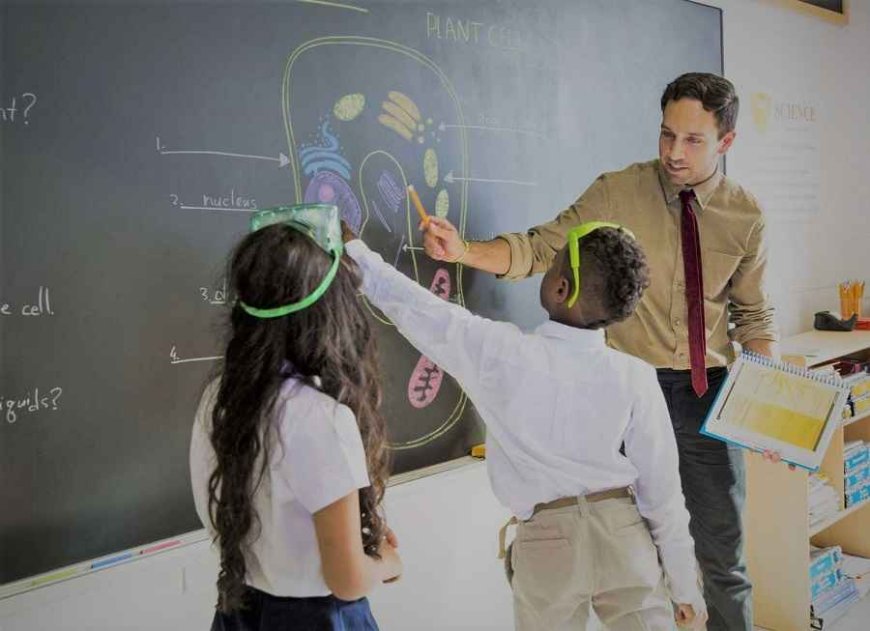Embracing Sustainable Education Practices
In an era marked by environmental challenges, the significance of sustainable education practices cannot be overstated.

In an era marked by environmental challenges, the significance of sustainable education practices cannot be overstated. As the world grapples with issues like climate change, resource depletion, and ecological imbalance, the need for an education system that imparts both knowledge and a sense of responsibility towards the planet has become paramount. This article delves into the essence of sustainable education practices, highlighting their importance in shaping conscientious and future-ready individuals.
Understanding Sustainable Education Practices
Sustainable education practices encompass a range of strategies that promote environmental awareness, ecological responsibility, and the holistic development of students. It goes beyond the traditional scope of education by incorporating concepts of sustainability, environmental stewardship, and ethical decision-making into the learning process. At its core, sustainable education is about fostering a deep connection between learners and their environment, enabling them to understand the interdependence of all life forms on Earth.
Integrating Sustainability Across the Curriculum
One of the key aspects of sustainable education practices is the integration of sustainability across various subjects and disciplines. By infusing environmental themes into subjects like science, social studies, mathematics, and even arts and literature, educators create an interdisciplinary approach that helps students connect theoretical knowledge to real-world challenges. This approach ensures that the concept of sustainability is not confined to a single class but is woven into the fabric of the entire educational experience.
Experiential Learning: Bridging Theory and Practice
An essential element of sustainable education practices is experiential learning. This approach encourages students to engage in hands-on activities, field trips, and practical projects that bring theoretical concepts to life. Whether it's planting trees, conducting energy audits, or participating in waste reduction initiatives, experiential learning enables students to witness the tangible impact of their actions on the environment. This first-hand experience fosters a deeper understanding and an emotional connection to sustainability.
Fostering Critical Thinking and Problem-Solving
Sustainable education practices emphasize the development of critical thinking and problem-solving skills. Students are encouraged to analyze complex environmental issues, consider multiple perspectives, and propose innovative solutions. This approach not only equips them with the skills needed to address environmental challenges but also nurtures their ability to tackle a wide range of problems they may encounter in their personal and professional lives.
Empowering Future Guardians through Knowledge
Education is a powerful tool for empowering individuals to become informed and responsible citizens. Sustainable education practices empower students with the knowledge of environmental issues, the causes of ecological imbalances, and the potential solutions. Armed with this knowledge, they are better equipped to make informed choices in their daily lives, advocate for sustainable practices, and contribute to positive change in their communities.
Promoting Environmental Ethics and Values
Sustainable education practices also focus on instilling ethical values and a sense of responsibility towards the environment. Students learn the importance of respecting nature, conserving resources, and adopting sustainable lifestyles. This values-based approach encourages them to become conscientious consumers, responsible decision-makers, and advocates for the protection of the planet.
Teachers as Role Models and Facilitators
Educators play a crucial role in implementing sustainable education practices. They serve as role models who embody eco-friendly behaviors and attitudes. Teachers also act as facilitators who guide students in exploring sustainability topics, conducting research, and participating in projects. Their guidance helps students develop a genuine interest in environmental issues and motivates them to take ownership of their learning.
Creating Sustainable Learning Environments
Sustainable education practices extend beyond the content of the curriculum. The physical learning environment itself can reflect principles of sustainability. Schools can incorporate energy-efficient infrastructure, waste reduction initiatives, and green spaces that serve as outdoor classrooms. These initiatives not only reduce the carbon footprint of educational institutions but also provide students with immersive experiences in sustainable living.
Collaboration and Community Engagement
Sustainable education practices emphasize collaboration and community engagement. Schools can partner with local organizations, government agencies, and environmental groups to create meaningful learning opportunities. Community-based projects, clean-up drives, and awareness campaigns involve students in real-world issues and connect their learning to practical solutions.
Assessment and Evaluation
Assessing the effectiveness of sustainable education practices requires a comprehensive approach. Traditional assessment methods, such as exams, may need to be complemented by alternative methods that capture students' practical skills, problem-solving abilities, and ethical values. Project-based assessments, presentations, and reflective journals can provide a more accurate representation of students' growth in sustainability-related competencies.
Embracing Change for a Sustainable Future
In a world grappling with environmental challenges, sustainable education practices offer a beacon of hope. By integrating sustainability across the curriculum, promoting experiential learning, fostering critical thinking, and instilling ethical values, these practices create a generation of informed and empowered individuals. As the world shifts towards more sustainable practices in various sectors, it's imperative that education plays its part in nurturing responsible citizens who will drive positive change and contribute to a greener and more sustainable future.
